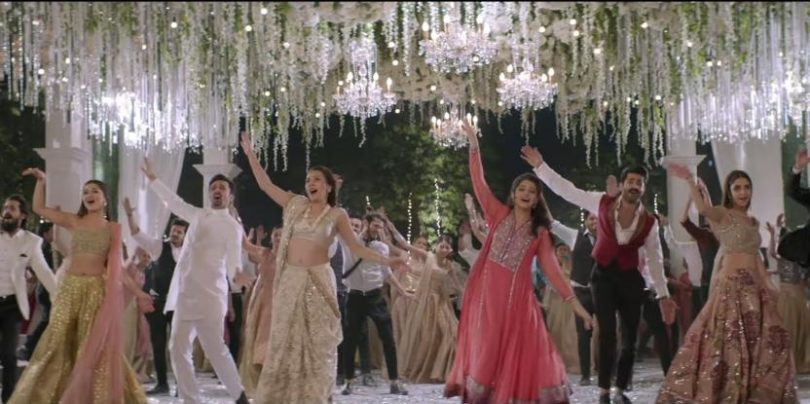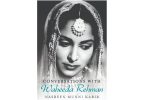Here are 11 Pakistani songs that many of us know and have hummed in the past but we had no idea they were copied!
By Omair Alavi Created: 27 February 2020
What is the first thing that comes to your mind when you think of Pakistani cinema, besides revival? For me, it is the countless songs that have stood out over the years and been sung by legends. Who can forget Ahmed Rushdi’s Kokokorina, Mala Begum’s Akele Na Jana, Madam Noor Jehan’s Badi Umer Hai Tumhari and Mehdi Hassan’s Ranjish Hi Sahi? Those songs stood out because of their composition, lyrics, singers and above all, originality. However, we don’t seem to come up with original filmi numbers that will stand the test of times, and that’s why when I found out that Jimmy Khan’s Haye Dil Bechara from Paray Hut Love wasn’t original, I wasn’t surprised at all. It wasn’t the first time a Western song was remade into a local one, and neither is it going to be the last time.
Let’s take a look at some of the songs (both filmi and non-filmi) that until now, you thought were original, but are anything but that.
1. Original Song: Come September theme (Hans J Salter – 1961)
Local version: Samajh Na Aaye Dil Ko (Daal Main Kala – 1962)
The film Come September came out in 1961 and was a box office hit, so much so that Bollywood based the first half of Kashmir Ki Kali on it. However, Pakistanis went a step further and copied the theme song of the film, and made it into a film song. Sung by Naheed Niazi and composed by her future husband Muslehuddin, the song was a hit and is still remembered by many. It was given an update later in 1990 when Tehseen Javed and Humera Channa sang another version in Ustadon Ke Ustaad but wasn’t able to make people forget the ‘original copied’ version.
2. Original Song: Summer Wine (Nancy Sinatra, Lee Hazlewood – 1967)
Local Version: Tujh Ko Basaya Hai (Ghar Damad – 1969)
Usually music composers in the 50s and the 60s made original compositions but there were a few who looked to the West for inspiration. Javed Sarwar was one such person and he copied the Summer Vine song so beautifully that many believed it was an original composition. Ahmed Rushdi and Runa Laila were the singers used and due to their stature, no one thought that such a filmi number could be plagiarized version of an English song rendered by Nancy Sinatra and Lee Hazlewood. It wasn’t until the 1990s when the song was adapted in a TV commercial that people realized that it wasn’t original. Thanks to the internet, now everyone knows if a song is copied or not but back then, it wasn’t that easy for ordinary people.
3. Original Song: Black Superman (Johnny Wakelin – 1974)
Local Version: Deewana Tumhen (Miss Hong Kong – 1979)
Mohammad Ali was not just the greatest boxer of all time, he was also the most popular sportsmen ever. His popularity in Pakistan was double because he was a boxer par excellence and also a Muslim who changed his name from Cassius Clay for religious purposes. Despite people knowing the ‘Black Superman’ song by heart in the 70s, music composer M. Ashraf and director Shamim Ara decided to localize the number, with Babra Sharif playing Tina in Miss Hong Kong. The song was sung by Naheed Akhtar but I still prefer Johnny Wakelin version for its relatability. Tina Mera Naam just doesn’t sound better than Catch Me If You Can!
4. Original Song: Dr. Zhivago (Lara’s Theme – 1965)
Local Version: Do Pyaase Dil (Bandish – 1980)
Renowned film director Nazr ul Islam was known for getting inspired from Indian films but music composer Robin Ghosh hardly composed anything that wasn’t original. The only time he slipped was when he composed this iconic song for Nazrul Islam which was lifted from the theme music of David Lean’s Dr. Zhivago. Known as Lara’s Theme, the music simply became Do Pyaase Dil that was rendered perfectly by Mehdi Hassan and Mehnaz Begum, and is still considered one of the best songs from the 1980s. Sadly, it was the only time Robin Ghosh let the director ‘direct’ him, for his career remains clean otherwise.
5. Original Song: Havar Havar (Kourosh Yaghmaei – 1973)
Local Version: Hawa Hawa Aye Hawa (Hassan Jahangir – 1987)
Hassan Jahangir rose to prominence with Hawa Hawa song that not just made him an international star but attracted the attention of Bollywood producers. The number was used thrice in Bollywood – once in the 80s, once in the 90s and once a few years back. To find out that the song was an inspired version of Kourosh Yaghmaei’s Havar Havar that was part of his debut album Gol e Yakh in 1973 was heartbreaking. Not just for the fans of Hassan Jahangir but also for the Bollywood producers who copied a copied song, and didn’t realize it on all three occasions.
6. Original Song: Does Your Mother Know (Abba – 1979)
Local Version: Main Ne Kal Dekha Tha (Alamgir – 1988)
Growing up in the 1980s was quite different from the 1990s or the years that followed. There was only one channel, and there were only a few pop stars with Alamgir being the best. His Albela Rahi was a known copy of Guantanamera but to imagine that Main Ne Kal Dekha was also not original, that hit hard, very hard. The song was filmed on a set that was ahead of its times and made many youngsters imagine themselves doing the simple dance moves in their rooms. Until the mirror cracked, and the original was unveiled after restrictions were lifted after General Zia’s death.
7. Original Song: Red Red Wine (UB40, 1983)
Local Version: Samjhana (Vital Signs – 1989)
And then came 1989, the year when Music 89 introduced a bunch of music bands that simply won the entire nation with their songs. The best of the lot was Vital Signs as the band members were nothing less than Hollywood stars because of their looks. They worked hard on their first album that became a huge hit, but in order to complete it quickly, they lifted a few songs from here, there and everywhere. Samjhana was an inspired version of another 80s hit by UB40 and if you listen to the numbers, you will realize that it even shames the word inspired. Sad!
8. Original Song: The More You Live (A Flock of Seagulls – 1984)
Local Version: Tum Door Thay (Vital Signs – 1989)
Imagine what would have happened to the youngster who sang this number in his farewell party at school. Well he is writing this piece for you because at that time, he felt that no song could define melancholy like this one, except for the time when he found out that this number wasn’t original as well. It was so well-localized by Rohail Hyatt and company that if someone tells me that A Flock of Seagulls wasn’t a band, I would believe Tum Door Thay was original. Heartbreaking!
9. Original Song: A groovy kind of love (Phil Collins – 1988)
Local Version: Aitebaar (Vital Signs – 1993)
They copied Yeh Shaam, Naraz, and Ajnabi besides a few other songs but that’s beside the point. Their title track from the third album Aitebaar was so good that many forgot that they plagiarized a few songs for the sake of completing their album, until it was revealed that even Aitebaar was lifted from Phil Collins’ album. The whole Vital Signs can never copy went down the drain after that, and so did Vital Signs as the late Junaid Jamshed went solo after the album, and sang original compositions. Hmmmm!
10. Original Song: A Fistful of Dollars Theme (Ennio Morricone – 1964)
Local Version: Akela Mujhe Chor Kay (Chalo Ishq Laraein – 2002)
How could they lift the theme music of one of the best Westerns of all times and believe that no one would notice. Sajid Hussain Chakoo was the man behind this act, whereas the lifted song launched and ended the singing career of leading lady Zara Sheikh. She remains one of the most beautiful actresses to work in a Pakistani film in the last 20 years, but singing was something she should have stayed away from. At least she could have opted for original numbers!
11. Original Song: Sofia – (Alvaro Soler – 2016)
Local Version: Haye Dil Bechara (Parey Hut Love – 2019)
And then there is the song that was blatantly copied from a Spanish number, that too at a time when YouTube is within everyone’s reach. Sung by Jimmy Khan and composed by one of the most promising music directors from the current lot Azaan Sami Khan, the song was watched by over 60 thousand people on YouTube alone. However, there were 3 thousand people who knew that it was a copied song, and their dislike should have made others notice. It didn’t and the film did very well at the box office, despite being an inspired version of Four Weddings and a Funeral.







